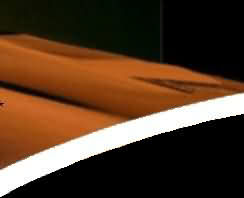





International Symposium on
Drylands Ecology and Human Security


© 2006 NDRD Imprint Disclaimer

|
Industrial Si-rich By-products and Appropriate Irrigation Technologies for Arab Drylands Matichenkov, V.V.* & Abisheva, Z.S.** *Institute of Basic Biological Problems, Russian Academy of Sciences, Pushchino, Russia Abstract The deficient of fresh water for irrigation in the Middle East dramatically reduced the agriculture development, greenery projects and lively desert project. Except direct deficiency of fresh water the problem of the salinity, secondary salinity and low level of plant resistance against salt toxicity are serious problems of irrigation in this region. On the other hand, cultivated plants realized less than 20% of natural plant protection possibilities against stresses include salt and water deficient stresses, which lay to gene information of these plants. Any plants have lot information in the DNA and can protect themselves against outside stress, if right mechanism will launch in the right time. But usually cultivated plant has not enough time for preparation the adequate answer to outside stresses. During several years the effect of active Si on the plant protection against salt toxicity and water deficient stress was investigated. Liquid forms of Si fertilizers were investigated. Si fertilizers were applied by foliar application. Salt toxicity was simulated by NaCl, which was add to irrigation water at the concentration 0, 0,3, 0,6 and 1,2 % of Na. The water deficiency was simulated for following levels of irrigation from optimum: 100%, 80%, 60% and 40%. The experiment was conducted with simulation of various levels of salt stress, water stress and combination of water and salt stresses. Sand was used as soil-media. Barley was used as tested plant. All variants had four replications. Fifty plants were seeded to each plot. The duration of the experiment was 4 weeks. The obtained results have demonstrated that the application of Si-rich materials dramatically improved the plant resistance to both type of stresses. Si fertilizers increased the biomass of barley irrigated by NaCl-bearing solution from 23 to 80%. Si fertilizers increased the biomass of barley grown under water deficiency from 20 to 60%. Data has shown that the application of Si fertilizer allow to reduce water irrigation application rate up to 40% without negative influence of the crop production of barley. The combination of salt and water stress has shown that the irrigation by salt-bearing solution increased the plant resistance to water deficiency, if Si fertilizer were applied. In the result we hypothesized, Si-rich materials increase the stability of plants under unfavorable condition. On the other hand the using of salt-bearing solution in the beginning of irrigation increases the plant resistance to any type of stresses, including water deficiency stress. By this means the combination of the Si fertilization together with salt-bearing solution allow to reduce the water irrigation rate up to 50% for any type of crop. The concentration of salt in the irrigation water can be different for different cultivated plants. |